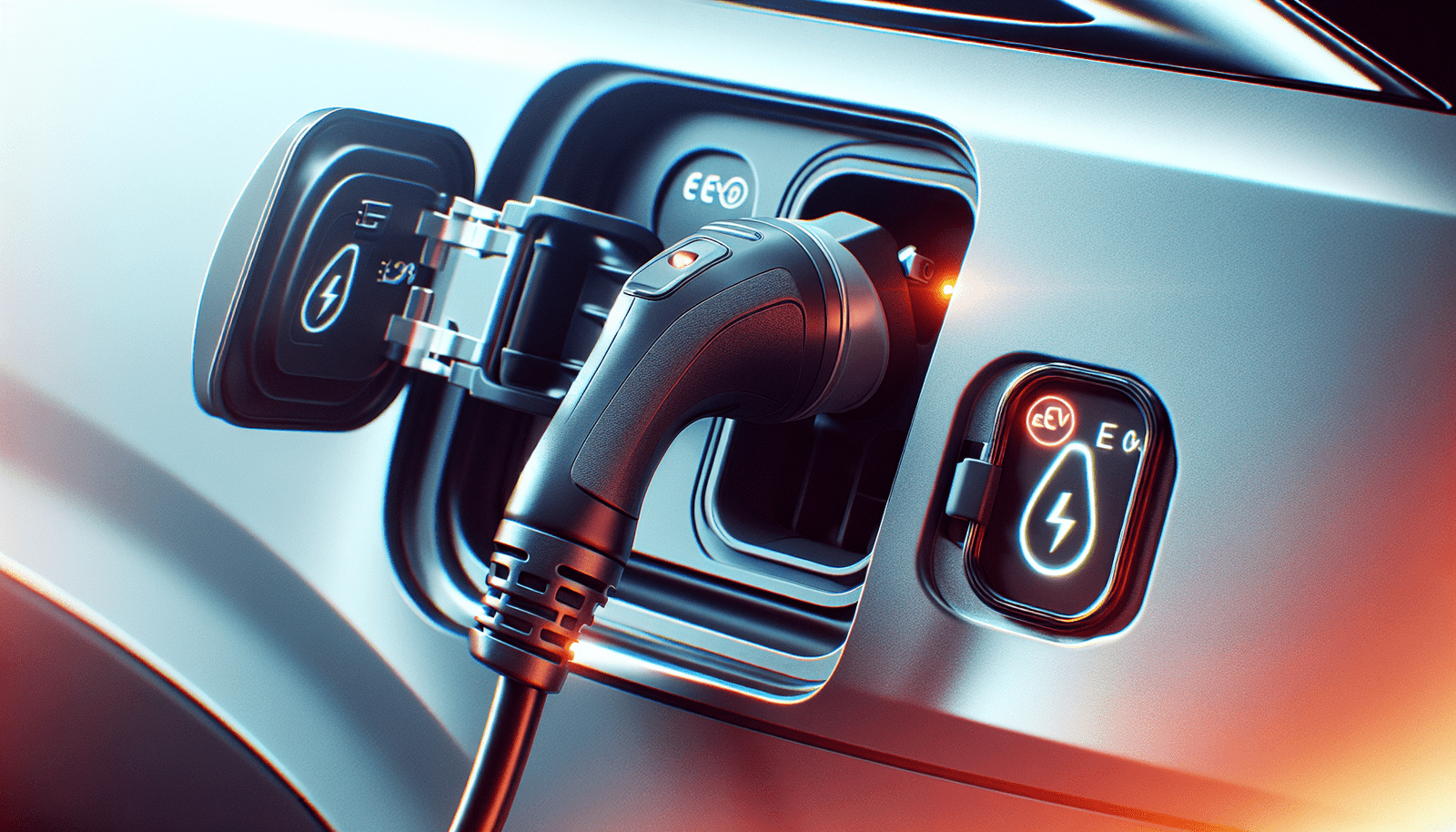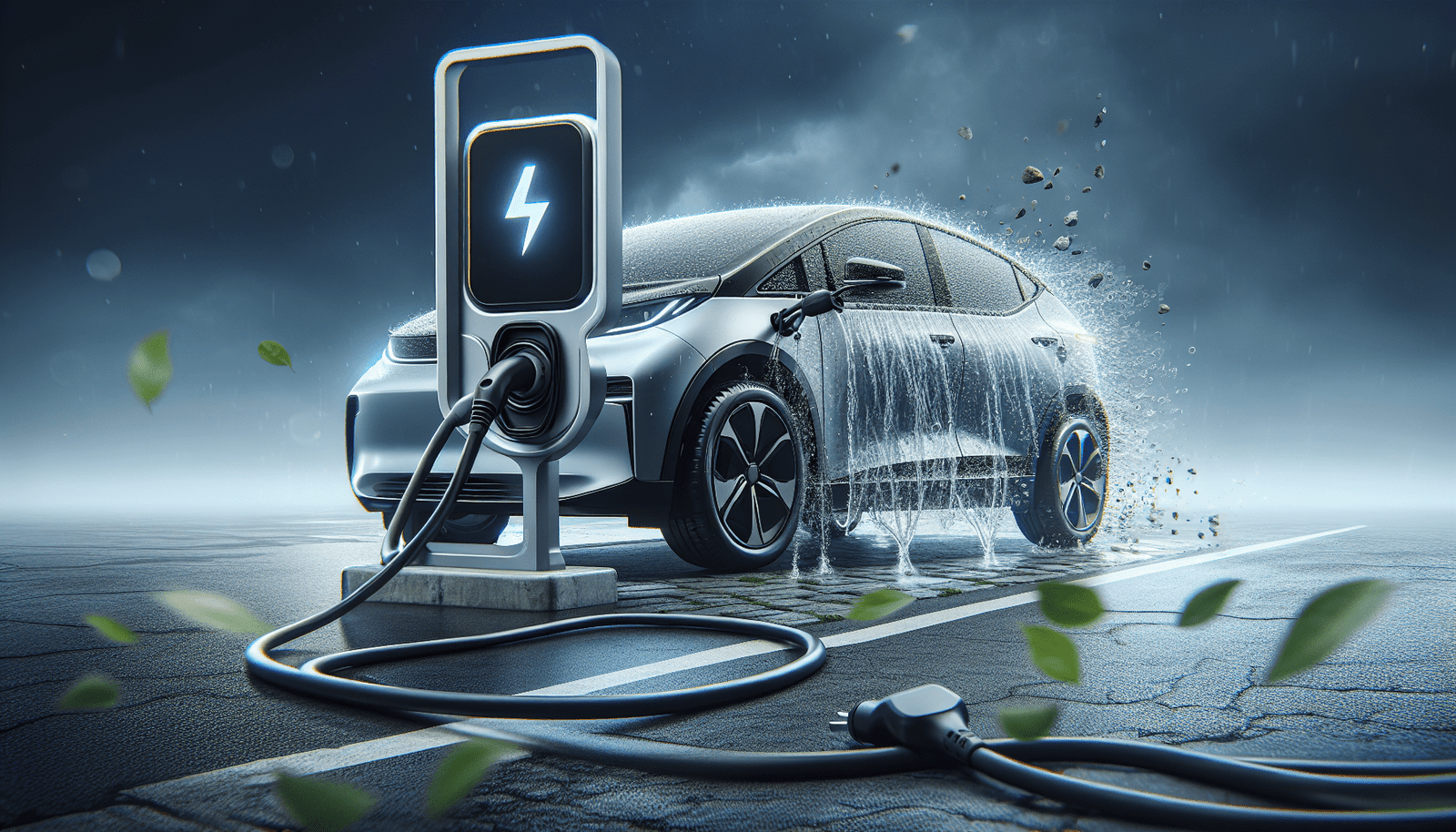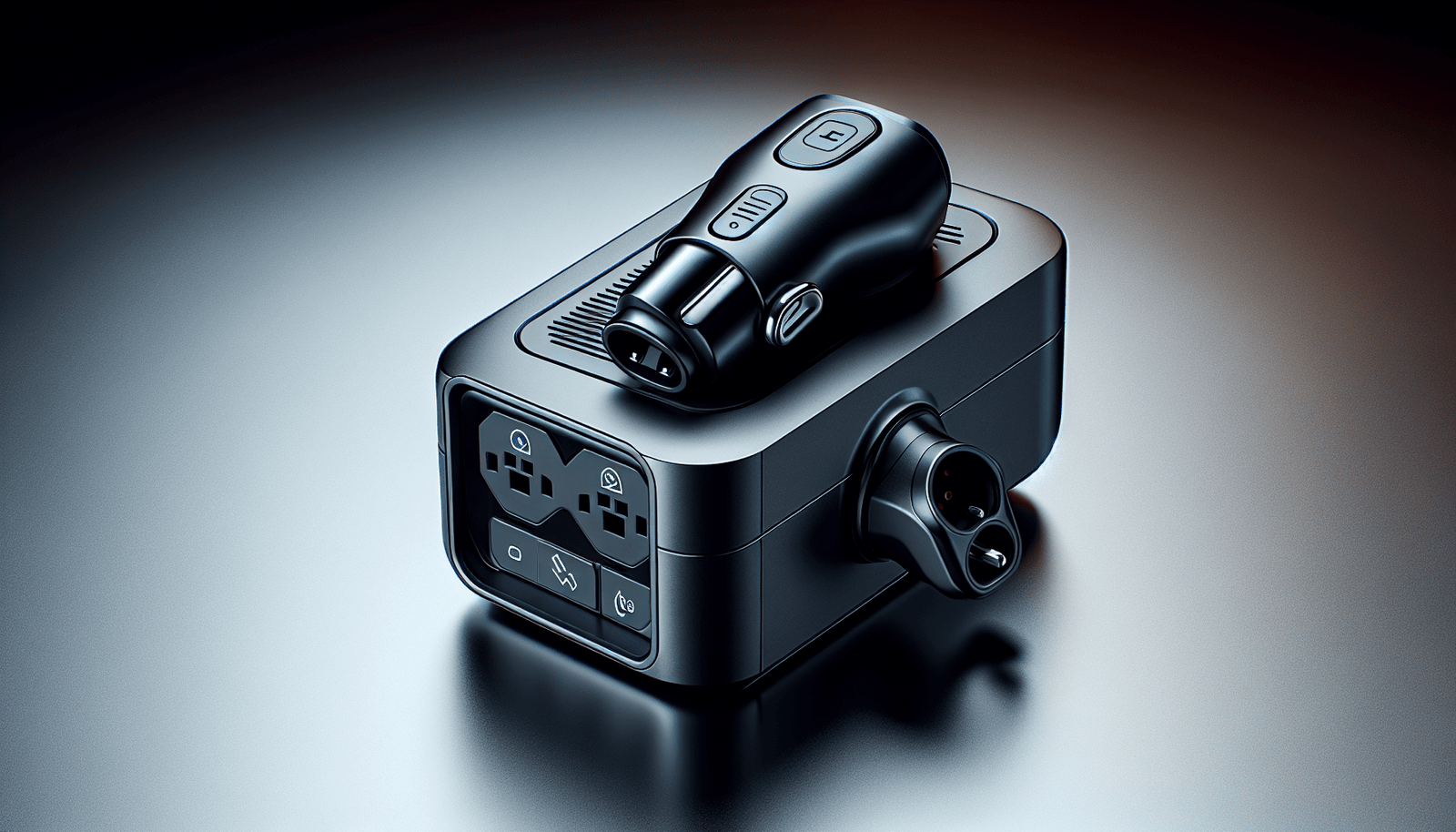Are you an avid electric vehicle user or someone looking for information on EV charger product reviews? If so, you’ve come to the right place! In this article, we’ll address frequently asked questions about electrical upgrades for EV charging in a friendly and approachable tone. We’ll provide you with easy-to-understand answers that avoid unnecessary jargon, ensuring that you can grasp the concepts without any confusion. So, whether you’re curious about the installation process or the best chargers on the market, we’ve got you covered. By the end of this article, you’ll have all the information you need to make informed decisions about your EV charging needs. So, let’s get started! Don’t forget to check out our online shop for all your EV charging requirements.
Understanding the Need for Electrical Upgrades
Why some houses require electrical upgrades
If you’re planning to install an electric vehicle (EV) charger in your home, it’s important to understand that not all houses are ready for this upgrade. Some older homes may have electrical systems that are not equipped to handle the additional power load required by an EV charger. Upgrading your electrical system ensures that you have the necessary capacity to safely and efficiently charge your vehicle.
The relationship between power of EV charger and home electrical system
The power of your EV charger is directly related to your home’s electrical system. Most EV chargers require a dedicated circuit with a higher amperage rating to provide sufficient power for charging the vehicle. If your home’s electrical system does not have the capacity to support the power requirements of the EV charger, an upgrade is necessary to avoid overloading the system and potential safety hazards.
Understanding the electrical system capacity of your house
To determine whether your house requires an electrical upgrade for EV charging, it’s important to assess the electrical system capacity. This involves evaluating the load capacity of your electrical panel, the wiring throughout your home, and the overall electrical infrastructure. An electrician can help you determine the current capacity of your electrical system and whether an upgrade is necessary to accommodate the power demands of an EV charger.
The Basics of Electrical Upgrades for EV Charging
The importance of safety precautions
When it comes to electrical upgrades, safety should always be the top priority. Working with electricity can be dangerous if not handled correctly, so it’s crucial to take the necessary safety precautions. This includes wearing protective gear, turning off the power supply before making any modifications, and consulting a professional electrician to ensure the work is done safely and up to code.
Understanding the role of electrical circuit breakers during upgrades
Electrical circuit breakers serve as protection for your electrical system. They are designed to trip and disconnect the power supply in the event of an overloaded circuit or a short circuit. During electrical upgrades for EV charging, the circuit breakers play a crucial role in ensuring that the additional power load is managed safely. Upgrading your electrical system may require adding new circuit breakers or upgrading the existing ones to handle the increased power demands.
Key components involved in an electrical upgrade
An electrical upgrade for EV charging involves several key components. These include the electrical panel, circuit breakers, wiring, outlets, and possibly additional infrastructure such as a dedicated charging station. Upgrading the electrical panel may be necessary to accommodate the additional load, and new wiring and outlets may need to be installed to connect the EV charger. It’s important to work with a professional electrician who can assess your specific needs and ensure that all the necessary components are in place for a safe and efficient installation.
Determining Whether Your Home Requires an Upgrade
Assessing the electrical load capacity of your home
To determine whether your home requires an electrical upgrade, it’s essential to assess the electrical load capacity. This involves evaluating the existing electrical system and calculating the maximum load it can handle. Factors such as the size of your home, the number of appliances and devices connected to the electrical system, and the overall power demands should be taken into consideration. An electrician can perform a load calculation to determine whether your current electrical system can support the additional power load of an EV charger.
Estimating the power requirements of your EV charger
Each EV charger has specific power requirements, usually measured in kilowatts (kW). To determine whether an electrical upgrade is necessary, you need to estimate the power requirements of your chosen EV charger. This information can usually be found in the charger’s specifications. Once you have this information, you can compare it to the capacity of your existing electrical system and determine whether an upgrade is needed.
Consulting with a professional electrician
To ensure an accurate assessment and proper guidance for your electrical upgrade, it’s highly recommended to consult with a professional electrician. An electrician can evaluate your home’s electrical system, estimate the power requirements for EV charging, and provide expert advice on whether an upgrade is necessary. They can also help you navigate the process of obtaining any required permits and ensure that the installation is done safely and up to code.
Professional vs. DIY Electrical Upgrades
When to consider hiring a professional electrician
While some homeowners may have the skills and knowledge to tackle electrical upgrades themselves, it’s often best to hire a professional electrician. Electrical work can be complex and potentially dangerous, so unless you have significant experience and expertise, it’s safer to rely on a professional. Hiring an electrician ensures that the work is done correctly, reduces the risk of electrical accidents, and gives you peace of mind knowing that your electrical system is in good hands.
Potential risks of DIY electrical upgrades
DIY electrical upgrades for EV charging can pose significant risks if not done correctly. Improper wiring, incorrect circuit sizing, or inadequate safety measures can lead to electrical hazards such as short circuits, electrical shock, or even electrical fires. Additionally, DIY electrical work may not meet local building codes and requirements, which can result in potential fines or issues when selling your home. To avoid these risks, it’s best to leave electrical upgrades to the professionals.
Understanding local building codes and permits
Electrical upgrades for EV charging must comply with local building codes and regulations. These codes ensure that the electrical work is done safely and up to standard. Hiring a professional electrician is crucial as they are familiar with these codes and can ensure that all the necessary permits are obtained. Violating building codes not only puts your safety at risk but can also result in expensive fines and complications when trying to sell your home.
The Process of Installing an EV Charger
Steps involved in the installation of an EV charger
The installation of an EV charger typically involves several steps. First, an electrician will assess your electrical system and determine the best location for the charger. Next, the necessary electrical wiring and infrastructure will be installed, including any upgrades or modifications to the electrical panel. The EV charger itself will then be mounted and connected to the electrical system. Finally, the system will undergo testing to ensure it is functioning properly and safely.
Ensuring compatibility between your EV charger and electrical system
During the installation process, compatibility between your chosen EV charger and your electrical system is essential. The charger should be compatible with the electrical load capacity of your home, ensuring that it can deliver the required power without overloading the system. It’s important to consult with an electrician before purchasing an EV charger to ensure compatibility and avoid any potential issues during installation.
Testing the EV charger post installation
Once the EV charger is installed, it’s crucial to test it to ensure proper functionality and safety. The electrician will perform various tests to verify that the charger is delivering power correctly, the connections are secure, and all safety measures are in place. Testing the charger post-installation provides peace of mind and ensures that you can confidently and safely charge your electric vehicle.
Understanding the Cost of Electrical Upgrades
Factors affecting the cost of electrical upgrades
The cost of electrical upgrades for EV charging can vary depending on several factors. These factors include the complexity of the installation, the amount of wiring and infrastructure required, the need for an electrical panel upgrade, and any additional modifications needed to meet local building codes. The overall cost will also depend on the labor fees charged by the electrician and the cost of any necessary permits.
How to budget for an electrical upgrade
Budgeting for an electrical upgrade starts with obtaining quotes from professional electricians. It’s recommended to gather multiple quotes to compare prices and services. Once you have an idea of the cost, you can allocate a budget for the upgrade. It’s also important to consider any potential financing options or incentives available for EV charger installation, which can help offset the overall cost.
Exploring financing options and incentives for EV charger installation
Installing an EV charger may be eligible for various financing options and incentives. Some utility companies offer rebates or discounts for installing EV chargers, while others may offer low-interest loans specifically for home electrical upgrades. Additionally, there may be federal or state-level incentives available for EV charger installation. It’s worth exploring these options to help offset the cost of the electrical upgrade and make it more affordable.
Maintenance and Troubleshooting for EV Chargers
Routine checks for your EV charger
Regular maintenance checks for your EV charger can help ensure its longevity and performance. These checks may include inspecting the charger for any physical damage, checking the connections for tightness and security, and cleaning the charger to prevent dust or debris buildup. It’s also important to follow the manufacturer’s recommended maintenance guidelines and schedule any necessary inspections or servicing as per the guidelines.
Common issues with EV chargers and how to fix them
While EV chargers are generally reliable, they can occasionally encounter issues. Some common issues include faulty connections, tripped circuit breakers, or software glitches. If you encounter any problems with your EV charger, it’s important to refer to the manufacturer’s troubleshooting guide or contact their customer support for assistance. In some cases, an electrician may need to be called to diagnose and resolve the issue.
When to call a professional for help
If you’re unsure about troubleshooting an issue with your EV charger or if you suspect a more significant electrical problem, it’s best to call a professional electrician for assistance. They have the expertise and knowledge to diagnose and resolve electrical issues safely. Attempting to fix complex electrical problems on your own can be dangerous and may further exacerbate the issue. Remember, safety should always be the top priority when dealing with electrical systems.
Benefits of Upgrading Electrical System for EV Charging
Improving the charging speed with a well-equipped electrical system
Upgrading your electrical system for EV charging comes with several benefits, one of which is improved charging speed. With an upgraded electrical system, you can provide a higher amperage to your EV charger, resulting in faster charging times. This is particularly important if you frequently rely on your electric vehicle and need quick charging between trips or during busy days.
Enhancing safety of your home and vehicle
Another significant benefit of upgrading your electrical system for EV charging is enhanced safety. By ensuring that your electrical system can handle the increased power load, you reduce the risk of overloading circuits, overheating, and potential electrical accidents. A well-equipped electrical system provides a stable and safe power supply, ensuring the longevity and performance of your EV charger and protecting your home and vehicle from unnecessary risks.
Increasing home value with an EV charger
Installing an EV charger and upgrading your electrical system can also increase the value of your home. As electric vehicles become more popular, having a dedicated charging solution in your home can be a selling point for potential buyers. It demonstrates that your home is future-ready, appealing to eco-conscious buyers who are considering electric vehicles. Upgrading your electrical system and investing in an EV charger can be an excellent investment in both your present comfort and your home’s long-term value.
Upgrading to a High-Power EV Charger
Why you might consider a high-power EV charger
While standard EV chargers are sufficient for most users, some may benefit from upgrading to a high-power EV charger. High-power chargers can deliver a significantly higher charging speed, reducing the time required to charge your electric vehicle. If you frequently travel long distances or have a larger battery capacity, a high-power EV charger can provide the convenience of faster charging times.
Electrical upgrades required for high-power EV chargers
Upgrading to a high-power EV charger usually requires additional electrical upgrades. High-power chargers typically require a higher amperage circuit and wiring to handle the increased power demand. Additionally, your electrical panel may need to be upgraded to support the higher load. Working with a professional electrician is essential to ensure that all the necessary electrical upgrades are completed safely and up to code.
Cost involved in installing a high-power EV charger
The cost of installing a high-power EV charger will depend on the specific requirements of your electrical system and the charger itself. High-power chargers generally come at a higher price point compared to standard chargers. Additionally, the electrical upgrades required to support the high-power charger may involve more labor and materials, resulting in additional costs. It’s recommended to consult with an electrician to get an accurate estimate of the cost involved before proceeding with the installation.
Future-proofing Your Home for EV Charging
The importance of planning for future needs
When considering an electrical upgrade for EV charging, it’s important to plan for future needs. As technology advances and electric vehicles become more prevalent, the power demands may increase. By future-proofing your home, you ensure that your electrical system can accommodate any potential changes or upgrades in the future. This saves you from the hassle and cost of retrofitting or upgrading your electrical system again down the line.
Considering scalability while upgrading electrical system
Scalability is a crucial aspect to consider when upgrading your electrical system for EV charging. By opting for a scalable solution, you can easily expand or upgrade your charging capabilities as needed without the need for significant modifications. This may involve installing a larger electrical panel, running additional wiring, or ensuring that the infrastructure is capable of supporting future upgrades. Working with a professional electrician who understands scalability is key to ensuring that your electrical system is ready for any future changes.
Investing in smart and upgradable EV chargers
An excellent way to future-proof your home for EV charging is by investing in smart and upgradable EV chargers. Smart chargers offer advanced features such as scheduling, remote control, and energy management. They also often come with upgradable software that can be easily updated to support new charging technologies. By choosing a smart and upgradable EV charger, you can adapt to future changes and advancements without the need for a complete replacement.
In conclusion, electrical upgrades for EV charging are crucial to ensure the safe and efficient charging of your electric vehicle. By understanding the need for these upgrades, assessing your home’s electrical system, and consulting with a professional electrician, you can determine whether an upgrade is necessary. Remember to prioritize safety and consider the benefits of upgrading, such as improved charging speed, enhanced safety, increased home value, and future-proofing your home for EV charging. With the right electrical upgrades and a well-equipped system, you can enjoy the convenience and sustainability of electric vehicle ownership.




